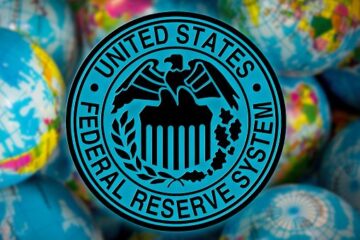Tariffs are on the tip of many Americans’ tongues, thanks to the multifaceted trade war in which U.S. President Donald Trump has used foreign taxes as a key negotiating tactic against foreign economic rivals.
While Trump says he loves everything about tariffs, including the word itself, the rest of the world’s business leaders don’t share his affinity.
Global stock markets certainly hate the trade war. Every time a new tariff is announced, foreign and domestic markets fall. Every time Trump announces a deal has been reached, markets rise, even if no concrete deals are ever made.
Related: Tariff repeal couldn’t come at a better time for US businesses
Even moreso than investors, Trump’s tariffs place business leaders in a most awkward position.
Businesses love predictability. Knowing what to expect and when to expect it allows them to plan for the future and forecast expectations.
However, Trump’s on-again, off-again tariffs have had the opposite effect, casting doubt on what businesses will have to pay their suppliers quarterly, monthly, or even weekly.
This environment has, understandably, had an adverse effect on CEO confidence, as reflected in the latest survey data from The Conference Board.
Business leaders flocked to President Donald Trump’s inauguration.
Image source: Nikhinson – Pool/Getty Images
CEO confidence hits lowest level since Covid
Every quarter, The Conference Board releases its Measure of CEO Confidence in collaboration wth The Business Council.
Over 130 CEOs participated in the Q2 survey between May 5 and May 19, and the results are concerning.
A reading below 50 indicates a negative outlook. The confidence index fell by 26 points to 34, the lowest level recorded since Q4 2022.
“All components of the Measure weakened into pessimism territory,“ said Conference Board’s Senior Economist of Global Indicators Stephanie Guichard.
Related: New car prices are rising; here’s where to get the best deal
“Expectations for the future also plummeted, with more than half of CEOs now expecting conditions to worsen over the next six months, both for the economy overall and in their own industries.“
The overwhelming majority of CEOs (83%) said they expect a recession in the next 12 to 18 months, nearly matching the rate reached in late 2022 and early 2023.
While tariffs and trade issues were near the top of the list of concerns, geopolitical concerns were the number one concern.
Geopolitical instability surpassed cybersecurity, ”which dominated CEOs’ concerns over the past two years,” but dropped to fourth this year.
However, the forecast from the top 1% isn’t all doom and gloom.
Most CEOs anticipate no change in the size of their workforce over the next 12 months. So while they expect hiring to be stagnant, they aren’t anticipating any layoffs.
The share of CEOs expecting to expand their workforce fell slightly to 28% from 32% in Q1. The share of CEOs planning to reduce their workforce rose 1% to 28%.
“Still, consistent with more pessimism about the outlook in their own industries, the share of CEOs expecting to revise down investment plans doubled in Q2 to 26%, while the share expecting to upgrade investment plans dropped 14 ppts to 19%,” said Business Council Vice Chairman Roger W. Ferguson.
Part of the reason employers are confident in the labor market is that they currently aren’t having trouble finding qualified candidates.
Since there’s less competition, the share of CEOs planning to raise wages by 3% or more over the next year dropped to 5% from 71% in Q1.
CEOs are also worried about where the economy is right now
While the future is murky for many CEOs, the present is almost equally disorienting.
The percentage of CEOs who say that economic conditions are worse now than they were six months ago jumped 11% to 82% in Q2. Only 2% of respondents felt economic conditions were better.
This change in sentiment is also reflected in the 69% of CEOs who said conditions in their own industries were worse than six months ago, a dramatic increase from 22% in Q1.
Only 7% said conditions improved in their industries, and there was also a significant drop from 37% in Q1.
Related: Wall Street’s TACO trade gains momentum amid stock market rally


